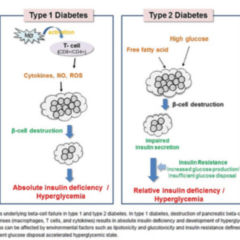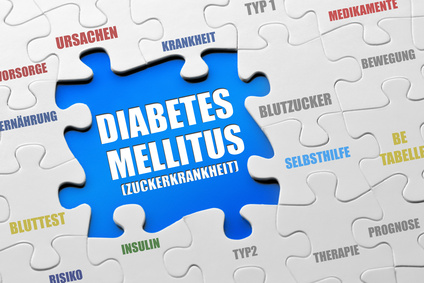Diabetes Mellitus Typ 3

Type 3 diabetes is a controversial name sometimes used to refer to alzheimer s disease a type of progressive dementia.
Diabetes mellitus typ 3. Nine out of 10 people with. The symptoms follow the same progression as alzheimer s disease beginning with difficulty remembering recent events and as the disease progresses linguistic problems mood and behavioural swings and motivational loss can also be apparent. While type 1 and type 2 diabetes are well defined the way in which less common forms of diabetes are classified has changed over the years. Symptoms of diabetes mellitus type 3.
Typ 3 diabeteswerden verschiedene formen des diabetes mellituszusammengefasst die nicht dem typ 1 oder typ 2 zuzurechnen sind. Although some symptoms may be similar it is a different condition to type 1 diabetes. Type 1 type 2 and gestational diabetes. The type of diabetes encountered can be established using a specific diagnosis.
Type 1 is the most common form of diabetes in people who are under age 30 but it can occur at any age. This type 3 diabetes is a term that has been proposed to describe the hypothesis that alzheimer s disease which is a major cause of dementia is triggered by a type of insulin resistance. Type 2 diabetes is the most common type of diabetes and is characterized by high levels of glucose sugar in the blood. There is no single definition of type 3 diabetes.
Type 3 diabetes is a proposed term to describe the interlinked association between type 1 type 2 diabetes and alzheimer s disease. Strong links have been made between the two conditions most notably that dementia may be triggered by a type of insulin resistance occurring specifically in the brain. Also known as juvenile diabetes this type occurs when the body fails to produce insulin. All the forms of diabetes grouped under type 3 are not easy to diagnose in clinical practice and are often included under type 1 or 2 diabetes based on similar symptoms.
The progression from. Diabetes mellitus also known simply as diabetes involves how your body turns food into energy. Unlike people with type 1 diabetes most people with type 2 diabetes still produce insulin. Ten percent of people with diabetes are diagnosed with type 1.
Three major diabetes types can develop. Currently the american diabetes association sets out four different groups of diabetes. In type 2 diabetes adult onset diabetes the pancreas makes insulin but it either doesn t produce enough or the insulin doesn t work properly. In rare cases pregnancy may trigger type 1 dm.






















